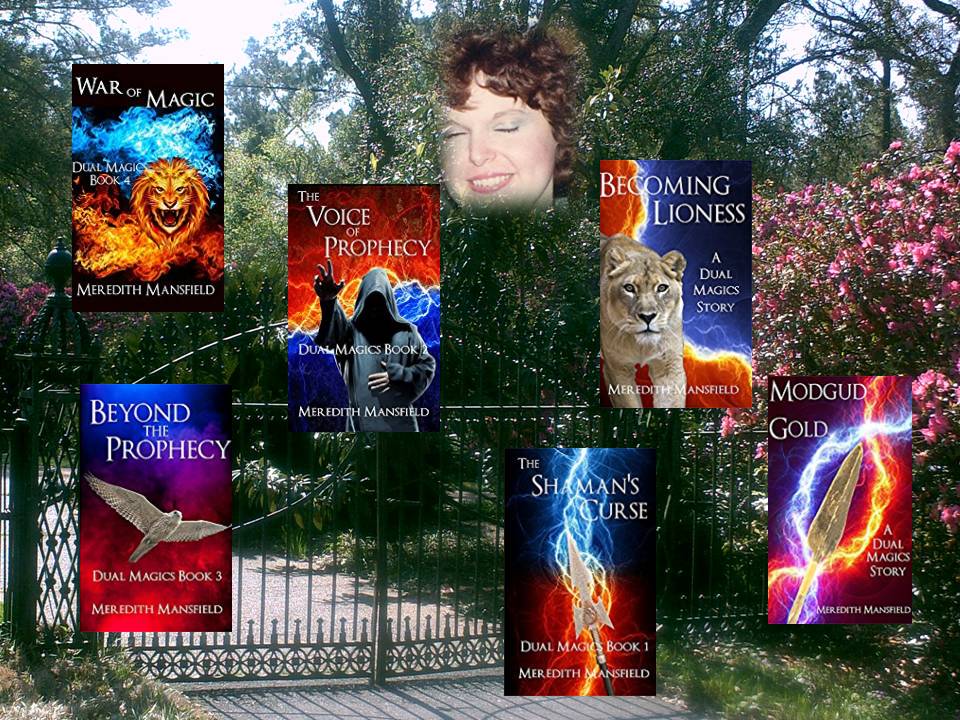
Today, we head to California to meet Author Meredith Mansfield.
Meredith Mansfield joins us today to share her works of fantasy and magic with you. You will find her books entertaining, and her characters will become friends before you get to the end of the stories.
Meredith is also a competent visual basic programmer who also holds a paralegal certificate. Like most authors, she daydreams about what she might like to be when she grows up.
Crafting stories has always been a huge part of her life.
Meredith, I understand you began your writing career while caring for your mother, who suffered from Alzheimer’s Disease. How did you separate the demands of being a caregiver with the concentration needed to create a storyline?
I wrote my very first novel while I was in college. But we’re not going to talk about that one. Okay? It’s justifiably hidden away where no one else will ever find it. Like nearly everything worth doing, writing does require practice to become proficient. I didn’t get back to writing until a few decades later when I was taking care of Mom.
During the first several years, Mom attended an adult day care run by the Salvation Army for five or six hours a day during the week. She enjoyed the group activities, and I credit the day care for helping to keep her functioning longer than most Alzheimer’s patients. That’s when I got started writing. Though I didn’t write anything that was ready for publication quite yet.
When Mom couldn’t go to the daycare anymore, she was still pretty healthy overall, especially for being in her 90’s. Caregiving in those circumstances means you are tied down, not able to go much farther than the end of the yard because you have to be there in case something happens. And people with Alzheimer’s can do some very unexpected things. It’s 24/7, but not in the sense that I had to be watching her every minute, fortunately. I could continue writing and just get up to check on her fairly frequently.
Escaping into the fantasy worlds I created during that time probably helped to keep me sane. That and my dogs. I was Mom’s caregiver for more than fourteen years after Dad’s death.
I started publishing during Mom’s last couple of years.
In your book “Fire and Earth,” seventeen-year-old Casora is forced to take a stand against an enemy that has already destroyed her homeland. How did you create the character of Casora and how does she grow through her relationships in the book. (If you can share that without giving any spoilers.)
Fire and Earth started as a much more conventional story—which wasn’t working at all. At least I didn’t think it worked until I flipped the genders and made the girl the scary warrior who rescued the runaway prince. That was a much more interesting story.
Without spoilers: Casora has been raised to fulfill her destined role as a warrior and protector of her people. Most of her relationships are with others like her and tend to reinforce that expectation. She really can’t see any other future until Prince Tiaran stirs things up.
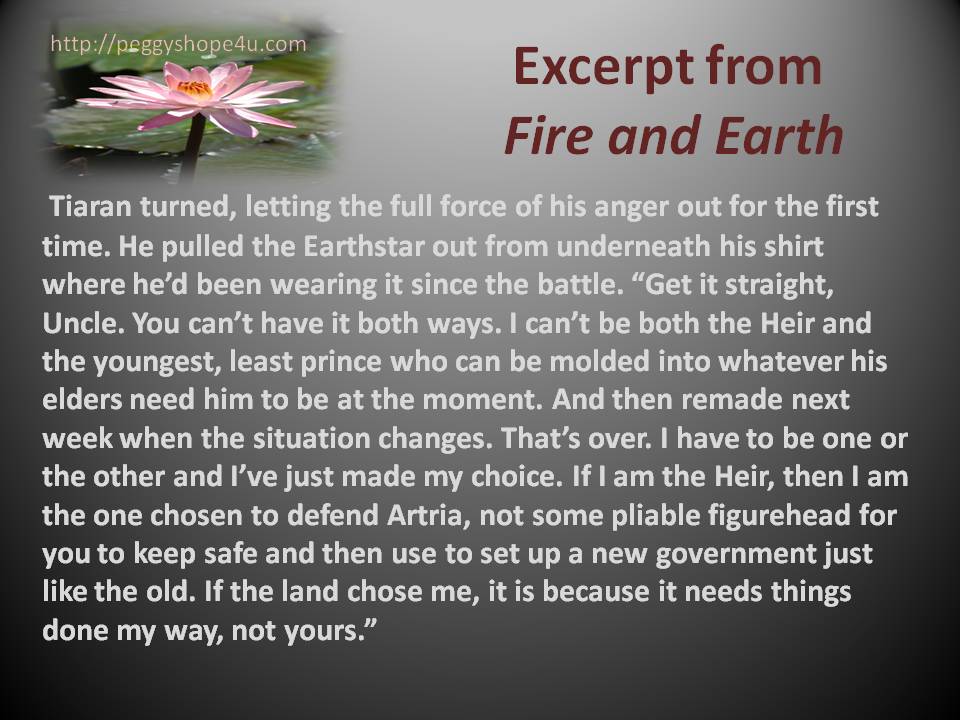
How would you describe “The Bard’s Gift?” Is it fantasy, magic, love story or a combination?
I consider The Bard’s Gift to be historical fantasy, based around the end of the Norse colony in Greenland and some ideas from the sagas about the discovery of Vinland—mixed with just a touch of Native American mythology (specifically, thunderbird). There’s not a lot of magic in this one, by comparison with some of my other stories. There is a strong romantic element, too.
Your character Vatar, in “The Shaman’s Curse,” is haunted by his inability to save someone he cares deeply for. How has life helped shape some of the challenges you depict in your books?
I’ve never been in—or near—a flash flood, so I never failed to pull anyone out of one, either. That tragedy is the very first thing that happens to Vatar.
That said, it’s hard to live very long without experiencing losses. In the ordinary course, many of them will not be unexpected on that day, but not unexpected either. Elderly grandparents, eventually elderly parents, often following an illness. But some will feel like they came out of the blue.
I had a friend who died quite unexpectedly in high school. She hadn’t let us know she was sick, so it felt impossibly tragic. Something you hardly believe can be true—especially at that age when you tend to think you’re immortal. A little like what Vatar experiences—without the survivor’s guilt he also felt.
It’s not possible to write only about things you’ve experienced—especially if you write fantasy. So it’s a necessary skill to be able to build off other life experiences. They can help you imagine what your character would feel in situations that are, thankfully, outside your experience.
Some of your readers refer to your characters as “best friends.” If Meredith Mansfield could pick one of character to become a best friend, who would it be and why?
Wow. That’s a little like asking a mother to pick her favorite child.
I think it might depend on the circumstances. The ones I’d want at my back in a dark alley are Casora from Fire and Earth and Valeriah from Blood Will Tell, and Blood Is Thicker come to mind. They are not necessarily the same ones I’d want to spend an afternoon with someday.
In general, though, Ailsa (Daughter of the Disgraced King) would make a good and loyal friend, and we’d share some interests. Also, Ailsa, Kerica (“Heart of Oak”) and I could make quite a threesome in some ways. But, then, Astrid (The Bard’s Gift) is the storyteller, and I’m very much into stories.
While I love all my other characters, too, I don’t think I’d fit very comfortably into their worlds—nor they in mine.
Which genres were you most fascinated by when you were young?
I’ve always enjoyed fantasy and some science fiction. I went through a period where I read a lot of historical fiction in my teens and twenties, but then I returned to my first love, fantasy.
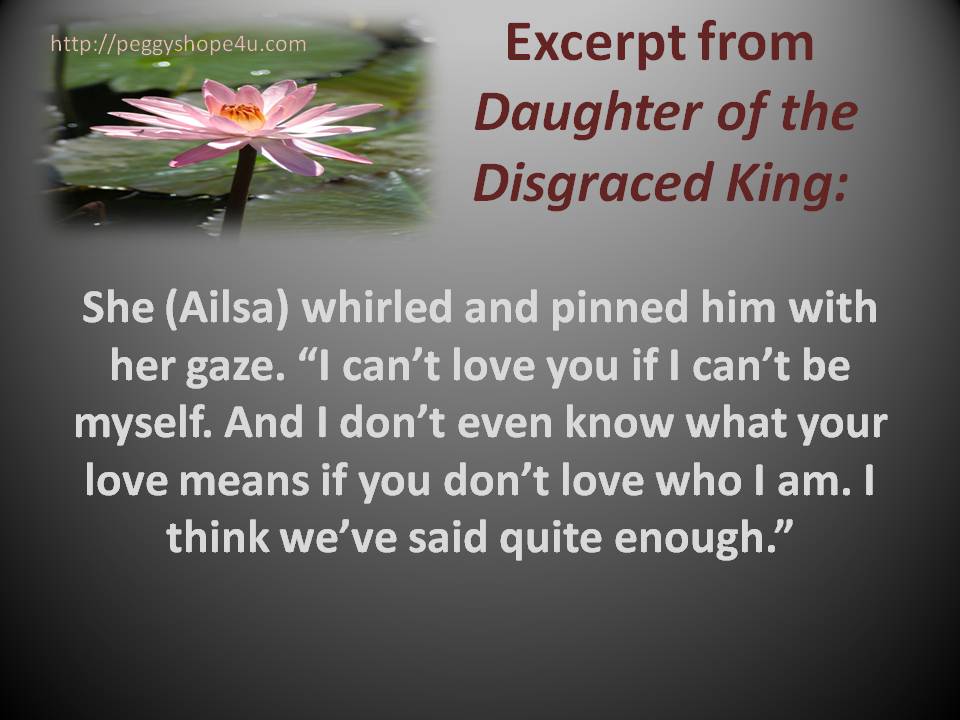
“Daughter of the Disgraced King” blends fantasy, magic, and teen romance. As a ‘Coming of Age’ novel, which age group is most likely to enjoy this offering?
I would hope it would have a wider audience. I know I’ve read more than a few YA stories and I’m a few decades older than Ailsa, the protagonist of DotDK.
In “Blood Will Tell” and “Blood Is Thicker” you have deviated from the Vatar series quite a bit. What was the most fun for you with these two books?
Blood Will Tell was the first novel I published, though the beginning of Vatar’s story already existed in an extremely rough version. Yes, I try not to repeat the same themes or worlds or, sometimes, even the same subgenres. One of the great things about fantasy is that there are so many entirely different worlds to create and kind of stories to tell.
Blood Will Tell was a lot of fun to write. I think I finished the first draft of that one in about six weeks—something that’s never happened again. Chimeria, which, in this story, is the alternate world all of our mythical creatures originally came from—and then returned to when our advancing technology scared them away—just has so many possibilities for playing with expectations:
- Unicorns that can be vicious politicians.
- Dragons that have grown a bit stodgy in their superiority.
- Werewolves who’ve been ostracized by the unicorns’ machinations.
And, all of them can take human form and do what humans do—including make hybrids. All mixed with a very bloody twenty-year-old mystery and a very current plot. Then too, Valeriah, the disinherited half-werewolf turned bodyguard, is such a volatile character. Stuff just naturally happens around her. But the Chimeria stories aren’t meant to be anything but pure entertainment. If they have anything to say, it’s “Well, wasn’t that fun?”
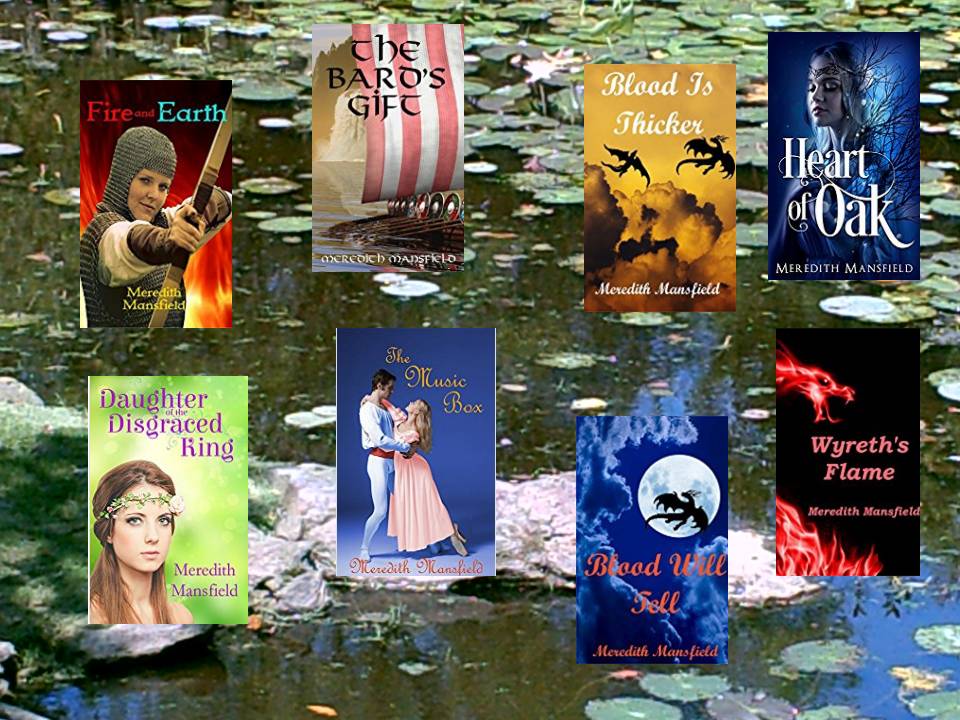
Not that there’s anything wrong with a pure entertainment story, but speculative fiction can also examine questions or ideas in a different matrix.
Fair warning. Neither Blood Will Tell nor Blood Is Thicker is as squeaky clean as my other books. They each have one scene, necessary to the plot, which slides over into PG territory. There’s a reason neither is on the Clean Indie Reads (CIR) website.
The Dual Magics series is epic fantasy or sword and sorcery (really spear and sorcery in Vatar’s case). A world with two entirely different kinds of magic, belonging to two separate groups of people who don’t interact with each other much. And one young man who belongs to both groups. The tagline for the series is: The two kinds of magic have always been separate. Until now. It’s very different from the urban fantasy/portal fantasy of Blood Will Tell. It wasn’t as much fun to write as Blood Will Tell, but a lot more satisfying. There’s a lot more depth in Dual Magics. And some interesting questions about acceptance and re-examining “the way things have always been.”
What are your plans for writing in the future?
Right now, I’m working on a new series (or possibly one very long book) based loosely on the original Greek legend of Hercules (NOT what Disney did with it). Especially exploring two elements of that legend.
In the original Greek legend, Hercules had a near-twin half-brother, Iphicles. The only thing the legend says about Iphicles is that he was the father of Hercules’s charioteer. He didn’t even get to be the sidekick! I find the possibilities of that relationship for the interplay of jealousy, brotherly love, loyalty, and betrayal (real and imagined) interesting.
Also, at the end of the Greek myth, Hercules burns to death—which can only destroy the mortal half of him. (Contrary to Disney, Hercules was half human, a demigod.) He emerges from the fire wholly immortal and becomes a god. Now, in the Greek legend, Hercules has excelled at slaying monsters and solving certain other kinds of problems that require both brains and brawn, but his personal life has been a complete disaster. It’s something his third wife does that causes him to burn, though that isn’t what she intended. Just what about his life fitted him to become a god? Another interesting question to explore.
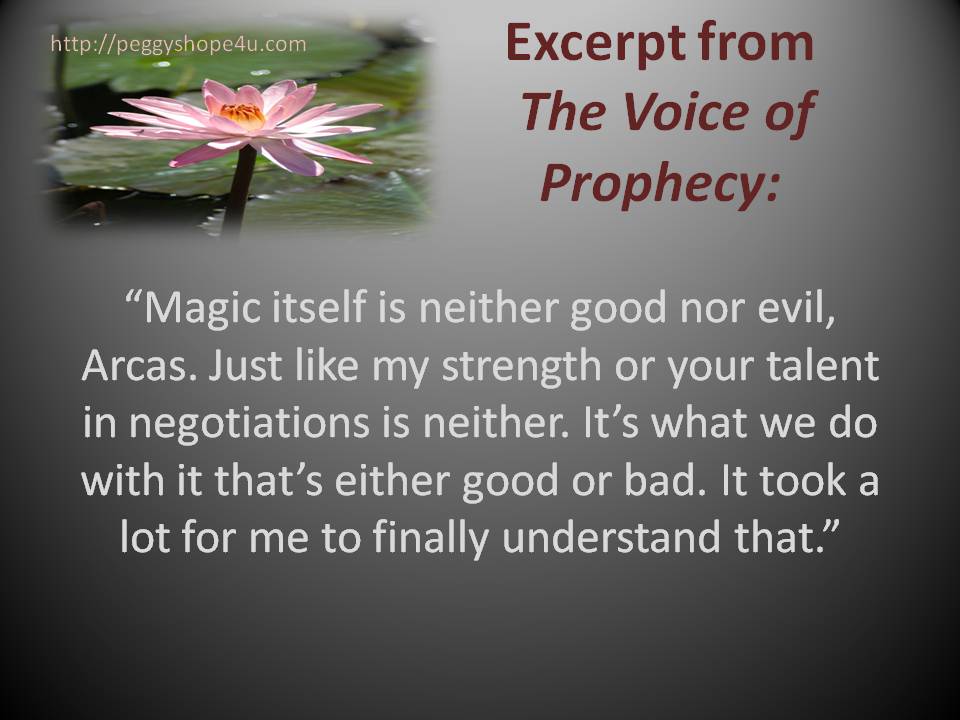
More Plans:
Of course, I’m taking most elements of the Greek story and turning them upside down in my story. It’s not a direct retelling, just inspired by the myth.
I have another story sitting on the back burner about a young man, living in a world where magic is presumed to have died when they killed all the mages, who becomes infected with magic that could kill him if he doesn’t learn how to channel it properly. That one’s likely a four-book series, possibly moving from epic fantasy into something steam punkish along the way. Because one of the interesting things to explore in that world is how people adapted to the loss of magic—and then how the return of magic interacts with the new technologies.
And then there’s that weird Oz story that’s been kicking around the back of my head. And possibly a couple of other stories in the same world as Daughter of the Disgraced King but centering on other main characters. (Though the principle characters of DotDK would probably appear as mentors to the new characters.)
One or two possible fairytale retellings. The different take on “Cinderella” might be one of those in the DotDK world. It could fit there. The “Little Furball” story would need its own world, though.
There really ought to be a third book in the Chimeria series (following Blood Will Tell and Blood Is Thicker).
Possibly, eventually, the prequel stories to the Dual Magics series, explaining how the world—and it’s people—got into the mixed-up situation it was in when Vatar came along. I’m not ready to go back to playing in that sandbox yet, though.
I don’t think I’m in danger of running out of things to write anytime soon.
Are there other genres you want to explore in the coming year?
This next year is likely to be pretty much taken up with the Hercules story described above. But, there are some other subgenres among the stories I mean to get to eventually—urban fantasy (both Chimeria and the weird Oz story), fairytale retellings, portal fantasies (the Oz story and Chimeria). Maybe a shifter story or two. Further down the road, there’s a possible alternate history/secret history that has a lot more fermenting to do.
Now that you are writing books, how much time do you devote to reading?
Nearly as much as I spend writing. Though lately I have a tendency to fall back on rereading the best ones. I need to break myself out of that cycle.
If there were one question you would have liked for me to ask, what is it and why?
Hmm. Something about world building, I think, because that’s part of the fun of writing fantasy. And it doesn’t always have to be a pseudo-medieval world.
Some of mine are, of course. Fire and Earth is. And I suppose you have to count The Bard’s Gift because the historical period it’s set in is the High Middle Ages.
But Daughter of the Disgraced King unfolds in a world that more closely resembles the desert southwest of the late 1800’s (but without guns)—and a more civilized area—or at least an area that has been settled far longer—that exerts control over the frontier.
As befits an epic fantasy, the Dual Magics series is more complex. Parts of that world are loosely based on the trading cities of the late Middle Ages and Renaissance, but juxtaposed with a nomadic herding people, and other groups.
There are so many possibilities to play with, as long as you can make the world feel coherent and plausible.
I got one of the books, I just hope I’ll find the time to read it. This sounds like my kind of fantasy. 😊
Thanks for stopping by, Mili! I know how busy you are and I’m sure Meredith will be delighted you’ve added her to your “to read” list.